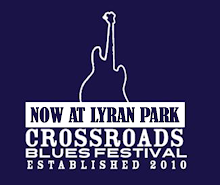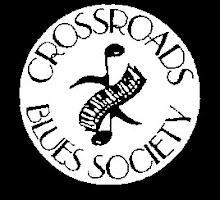Fever
Little Willie John – A Fast Life, Mysterious Death and the Birth of Soul
Susan Whitall with Kevin John
Titan Books
210 pages
In this fascinating book, author Susan Whitall makes a convincing case for recognizing singer Little Willie John has the pivotal performer who started the transition from the rhythm and blues music of the 1940's to what is now consider soul music. A former editor of Creem magazine, Whitall gets an assist from Willie's oldest son, Kevin, for this authorized biography.
William Edward John was born on November 15, 1937 in Detroit. As a child, Willie was quite active even though the stress of constant motion sometimes triggered epileptic seizures. Among Willie's childhood friends were future stars like Levi Stubbs, lead singer for the Four Tops, and Willie's older sister Mable, whose career include a stint as one of Ray Charles' Raelettes and records for the Tamla and Stax labels. Willie started singing in the church at a young age but soon he was sneaking out of the house to head down to the action in the clubs along Hastings Street. Small of stature, Willie possessed a magnificent voice that could hit any note over a span of several octaves, even in the upper registers.
Whitall writes about one magical evening when Clyde McPhatter and Sam Cooke were in Detroit for shows and got together for some informal singing with Willie, Stubbs and another Detroit native, Jackie Wilson. One can only imagine the glorious sounds raised by this awesome collection of talent. The legendary Johnny Otis claimed to have discovered Willie but it was a local impresario, Harry Balk, who helped Willie start his recording career after Willie's parents refused an offer to let Willie go on the road with Count Basie and his band. Just shy of his sixteenth birthday, Willie cut his first record, a holiday tune titled “Mommy What Happened to Our Christmas Tree”, which immediately became a much-requested local hit. Eventually, Willie does hit the road with the Paul Williams Band, touring on the strength of their hit, “The Hucklebuck”.
Willie dreamed of the bright lights and soon answered the siren call of New York City, where he soon captured the attention of Henry Glover of King Records. Glover felt that Willie was a natural blues singer. He gathered a stellar backing group that included Mickey “Guitar” Baker and tenor sax player Willis “Gatortail” Jackson and turned Willie loose on Titus Turner's “All Around the World (Grits Ain't Groceries”. Within a month, the record was a huge hit, reaching #5 on the Billboard charts. Next up was “Need Your Love So Bad”, another performance for the ages. Not yet eighteen, Willie sings with a maturity and sense of worldliness far beyond his actual experiences. The song made such an impression on B.B. King that he recorded his own version on several occasions.
Then came the tune that will forever define Willie's career -”Fever”. He didn't care for the song and it took him all night in the studio to finally get comfortable. Once he got the song figured out, Willie's vocal combined the joy of love with a deeper carnal lust and made it all sound swinging and cool. The record hit number one on Billboard's R&B chart and became the sixth most played jukebox song of 1956. Soon Willie gets Little Richard's band, the Upsetters, to back him and the combination of show-stopping talent dazzles audiences across the country
The following years find Willie trying to deal with the demands of constant touring with his longing to be with his wife, Darlynn, and their two sons, Kevin and Keith. The stress of life on the road causes more seizures, as does Willies consumption of alcohol and drugs. Despite the acclaim of his peers and sales of over seven million records, Willie's fast living and fancy clothes left him struggling to get by financially.
Then, in November of 1965, Willie's world came crashing down around him as he was accused of stabbing a man to death after a night of partying. Poor legal counsel ignored the self-defense plea even though the victim was physically much larger than Willie and had struck the first blow. Convicted and sentenced to prison, Willie did not fare well. After two years in prison, he died suddenly at the age of thirty, leaving Whitall to speculate on what really happened .
The book includes several sections of pictures and a discography of Willie's singles and albums for King Records. More importantly. Whitall is able to really flesh out the life of this magnificent singer and place his artistry in a wider context to firmly establish Willie's importance. This is one of the best musical biographies I have read - well worth checking out!






No comments:
Post a Comment